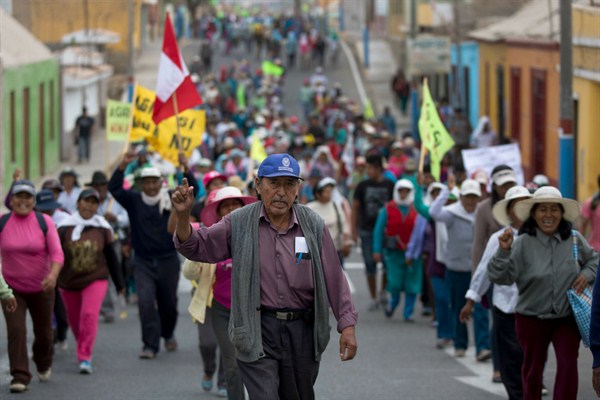In mid-October, Peruvian authorities declared a 30-day state of emergency in the copper-rich province of Chumbivilcas, where anti-mining protesters had blocked a stretch of a vital highway called the Southern Runway for almost a month. The blockade, led by indigenous farmers and laborers known as comuneros, caused major disruptions to local commerce and large-scale mining efforts nearby, and nearly forced a halt in operations at Las Bambas, one of Peru’s largest copper mines.
It was just the latest in a series of anti-mining protests by comuneros in Peru this year, which have held up hundreds of millions of dollars in copper exports and forced the Peruvian government into contentious negotiations over indigenous land rights and environmental concerns. The world’s No. 2 copper producer with reserves estimated at 83 million tons, Peru is highly dependent on copper exports, which generated $12 billion in 2017, more than a quarter of its total exports that year, according to data tabulated by the Observatory of Economic Complexity.
Rather than negotiations, the government opted for a more heavy-handed approach in Chumbivilcas, mobilizing military and police personnel to clear the highway and suspending the right to assemble in four districts in the province. The Las Bambas mine—which is owned and operated by a Chinese mining company, Minerals and Metals Group, or MMG—is considered the world’s ninth-largest copper mine. With an annual output of approximately 400,000 tons, it accounts for 16 percent of Peru’s total copper output. Over its projected 20-year lifespan, the mine is expected to contribute $5 billion in tax revenues and royalty payments. The Peruvian government’s desire to keep it running is therefore understandable, but its tactics marked an escalation in its strategy to protect multinational mining activities at the expense of local communities.

